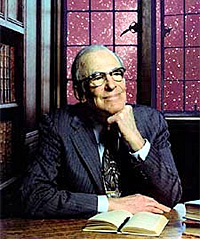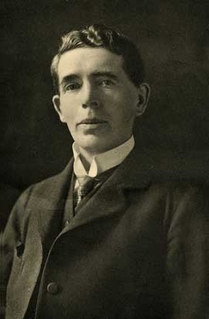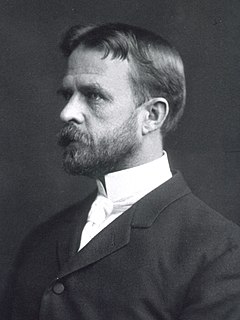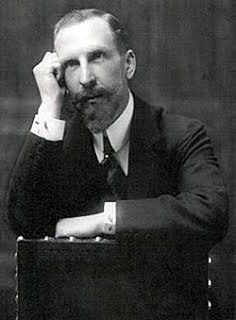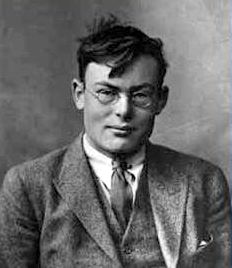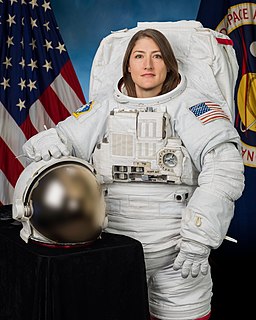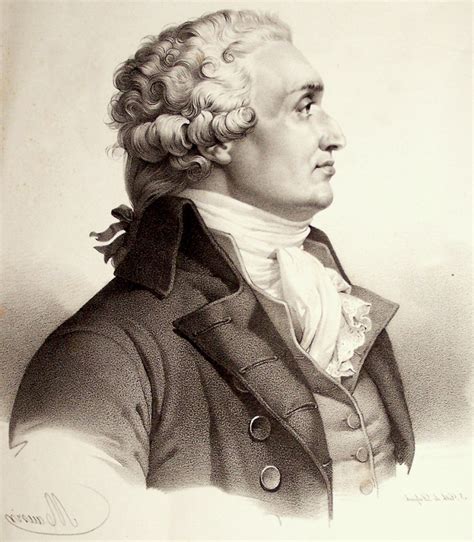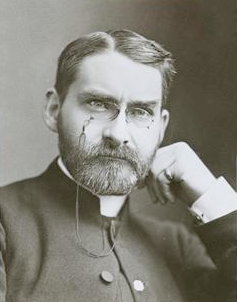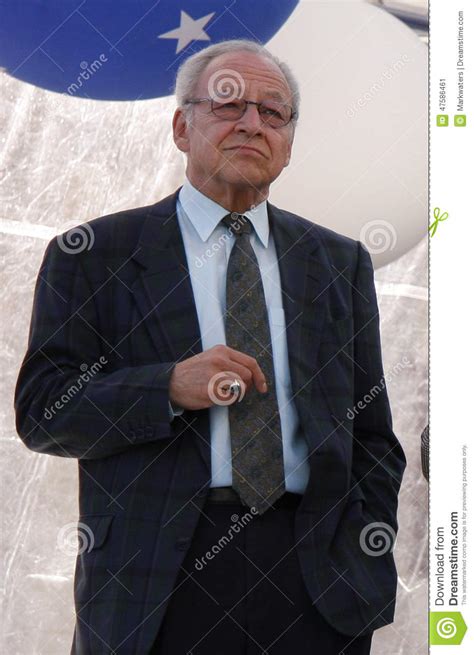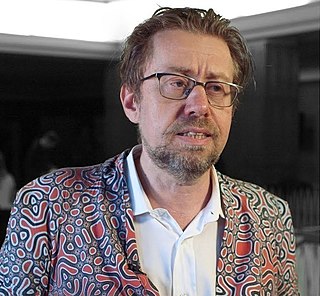Top 298 Astronomy Quotes & Sayings - Page 5
Explore popular Astronomy quotes.
Last updated on November 20, 2024.
Mark Tobey fills his canvases with elliptical, calligraphic lines, beautiful whirls that seem at first glance to be completely abstract and to come from nowhere at all except his own subjective musing. But I shall never forget how struck I was, on visiting Tobey's studio one day, to see strewn around books on astronomy and photographs of the Milky Way. I knew then that Tobey experiences the movement of the stars and solar constellations as the external pole of his encounter.
Khalif (Caliph) Al-Ma'mun's period of rule (813 - 833 C.E.) may be considered the 'golden age' of science and learning. He had always been devoted to books and to learned pursuits. His brilliant mind was interested in every form of intellectual activity. Not only poetry but also philosophy, theology, astronomy, medicine and law all occupied his time.
The end of the eighteenth and the commencement of the nineteenth century are remarkable for the small amount of scientific movement going on in this country, especially in its more exact departments. Mathematics were at the last gasp, and astronomy nearly so; I mean in those members of its frame which depend upon precise measurement and systematic calculation. The chilling torpor of routine had begun to spread itself over all those branches of Science which wanted the excitement of experimental research.
"The Universe repeats itself, with the possible exception of history." Of all earthly studies history is the only one that does not repeat itself. ... Astronomy repeats itself; botany repeats itself; trigonometry repeats itself; mechanics repeats itself; compound long division repeats itself. Every sum if worked out in the same way at any time will bring out the same answer. ... A great many moderns say that history is a science; if so it occupies a solitary and splendid elevation among the sciences; it is the only science the conclusions of which are always wrong.
If cathedrals had been universities If dungeons of the Inquisition had been laboratories If Christians had believed in character instead of creed If they had taken from the bible only that which is GOOD and thrown away the wicked and absurd If temple domes had been observatories If priests had been philosophers If missionaries had taught useful arts instead of bible lore If astrology had been astronomy If the black arts had been chemistry If superstition had been science If religion had been humanity The world then would be a heaven filled with love, and liberty and joy
If you are serious about your religion, if you really wish to commit yourself to the spiritual quest, you must learn how to use psychochemicals. Drugs are the religion of the twenty-first
century. Pursuing the religious life today without using psychedelic drugs is like studying astronomy with the naked eye because that's how they did it in the first century A.D., and besides
telescopes are unnatural.
So if the worth of the arts were measured by the matter with which they deal, this art-which some call astronomy, others astrology, and many of the ancients the consummation of mathematics-would be by far the most outstanding. This art which is as it were the head of all the liberal arts and the one most worthy of a free man leans upon nearly all the other branches of mathe matics. Arithmetic, geometry, optics, geodesy, mechanics, and whatever others, all offer themselves in its service.
Astronomy may be revolutionized more than any other field of science by observations from above the atmosphere. Study of the planets, the Sun, the stars, and the rarified matter in space should all be profoundly influenced by measurements from balloons, rockets, probes and satellites. ... In a new adventure of discovery no one can foretell what will be found, and it is probably safe to predict that the most important new discovery that will be made with flying telescopes will be quite unexpected and unforeseen.
The so-called Christian nations are the most enlightened and progressive ... but in spite of their religion, not because of it. The Church has opposed every innovation and discovery from the day of Galileo down to our own time, when the use of anesthetic in childbirth was regarded as a sin because it avoided the biblical curse pronounced against Eve. And every step in astronomy and geology ever taken has been opposed by bigotry and superstition. The Greeks surpassed us in artistic culture and in architecture five hundred years before Christian religion was born.
There was a transition going on - Baghdad being the intellectual capital of the world where major advances were made in agriculture and mathematics and engineering and medicine and astronomy, and then that all sort of collapsed. And I was trying to understand how such a intellectually fertile environment can lose its compass bearing. Because I think about the creative centers today - countries, or even regions. Will Silicon Valley always be as innovative? Will the United States be innovative, or will we become complacent?
It is interesting to transport one's self back to the times when Astronomy began; to observe how discoveries were connected together, how errors have got mixed up with truth, have delayed the knowledge of it, and retarded its progress; and, after having followed the various epochs and traversed every climate, finally to contemplate the edifice founded on the labours of successive centuries and of various nations.
I may remind you that history is not a branch of literature. The facts of history, like the facts of geology or astronomy, can supply material for literary art; for manifest reasons they lend themselves to artistic representation far more readily than those of the natural sciences; but to clothe the story of human society in a literary dress is no more the part of a historian as a historian, than it is the part of an astronomer as an astronomer to present in an artistic shape the story of the stars.
Realizing how often ingenious speculation in the complex biological world has led nowhere and how often the real advances in biology as well as in chemistry, physics and astronomy have kept within the bounds of mechanistic interpretation, we geneticists should rejoice, even with our noses on the grindstone (which means both eyes on the objectives), that we have at command an additional means of testing whatever original ideas pop into our heads.
Had I been present at the Creation, I would have given some useful hints for the better ordering of the universe. Remarking on the complexity of Ptolemaic model of the universe after it was explained to him. Footnote: Carlyle says, in his History of Frederick the Great, book ii. chap. vii. that this saying of Alphonso about Ptolemy's astronomy, 'that it seemed a crank machine; that it was pity the Creator had not taken advice,' is still remembered by mankind, - this and no other of his many sayings.
We know from astronomy that the universe had a beginning, from physics that the future is both open and unpredictable, from geology and paleontology that the whole of life has been a process of change and transformation. From biology we know that our tissues are not impenetrable reservoirs of vital magic, but a stunning matrix of complex wonders, ultimately explicable in terms of biochemistry and molecular biology. With such knowledge we can see, perhaps for the first time, why a Creator would have allowed our species to be fashioned by the process of evolution.
Da Vinci was as great a mechanic and inventor as were Newton and his friends. Yet a glance at his notebooks shows us that what fascinated him about nature was its variety, its infinite adaptability, the fitness and the individuality of all its parts. By contrast what made astronomy a pleasure to Newton was its unity, its singleness, its model of a nature in which the diversified parts were mere disguises for the same blank atoms.
The Earth is the only world known so far to harbor life. There is nowhere else, at least in the near future, to which our species could migrate. Visit, yes. Settle, not yet. Like it or not, for the moment the Earth is where we make our stand. It has been said that astronomy is a humbling and character-building experience..... To me, it underscores our responsibility to deal more kindly with one another, and to preserve and cherish the pale blue dot, the only home we've ever known.
The Vedas give information on various subjects. They have come together and form one book. And in later times, when other subjects were separated from religion - when astronomy and astrology were taken out of religion - these subjects, being connected with the Vedas and being ancient, were considered very holy.
Each of the major sciences has contributed an essential ingredient in our long retreat from an initial belief in our own cosmic importance. Astronomy defined our home as a small planet tucked away in one corner of an average galaxy among millions; biology took away our status as paragons created in the image of God; geology gave us the immensity of time and taught us how little of it our own species has occupied.
Then, though I prize my friends, I cannot afford to talk with them and study their visions, lest I lose my own. It would indeed give me a certain household joy to quit this lofty seeking, this spiritual astronomy, or search of stars, and come down to warm sympathies with you; but then I know well I shall mourn always the vanishing of my mighty gods.
After a duration of a thousand years, the power of astrology broke down when, with Copernicus, Kepler, and Galileo, the progress of astronomy overthrew the false hypothesis upon which its entire structure rested, namely, the geocentric system of the universe. ... the earth revolves in space intervened to upset the complicated play of planetary influences, and the silent stars, relegated to the unfathomable depths of the sky, no longer made their prophetic voices audible to mankind.
If I were going to construct a God I would furnish him with some ways and qualities and characteristics which the Present One lacks... He would spend some of His eternities in trying to forgive Himself for making man unhappy when He could have made him happy with the same effort and He would spend the rest of them in studying astronomy.
Many a man, brought up in the glib profession of some shallow form of Christianity, who comes through reading Astronomy to realize for the first time how majestically indifferent most reality is to man, and who perhaps abandons his religion on that account, may at that moment be having his first genuinely religious experience.
As the twentieth century began, science equaled a materialistic worldview. As the twenty-first century began, the worldview of science, at least of physics and astronomy, may have traded place with that of religion. Consider Einstein's famous equation E = mc2. Nothing of matter dies but continues on in another form, elsewhere. The church divines and theologians for two thousand years have devised arguments and "proofs" of immortality but nothing equal to this.
The existing and long-standing use of the word 'evolution' in our state's textbooks has not adversely affected Georgians' belief in the omnipotence of God as creator of the universe, There can be no incompatibility between Christian faith and proven facts concerning geology, biology, and astronomy. There is no need to teach that stars can fall out of the sky and land on a flat Earth in order to defend our religious faith.
My days I devote to reading and experiments in chemistry, and I spend many of the clear nights in the study of astronomy. There is, though I do not know how there is or why there is, a sense of infinite peace and protection in the glittering hosts of heaven. There it must be, I think, in the vast and eternal laws of matter, and not in the daily cares and sins and troubles of men, that whatever is more than animal within us must find its solace and its hope.
Just as the spectroscope opened up a new astronomy by enabling the astronomer to determine some of the constituents of which distant stars are composed, so the seismograph, recording the unfelt motion of distant earthquakes, enables us to see into the earth and determine its nature with as great a certainty, up to a certain point, as if we could drive a tunnel through it and take samples of the matter passed through.
The motion of the stars calculated by the Hindus before some 4500 years vary not even a single minute from the tables of Cassine and Meyer (used in the 19-th century). The Indian tables give the same annual variation of the moon as the discovered by Tycho Brahe - a variation unknown to the school of Alexandria and also to the Arabs who followed the calculations of the school ... The Hindu systems of astronomy are by far the oldest and that from which the Egyptians, Greek, Romans and - even the Jews derived from the Hindus their knowledge.
My picture of the world is drawn in perspective and not like a model to scale. The foreground is occupied by human beings and the stars are all as small as three-penny bits. I don't really believe in astronomy, except as a complicated description of part of the course of human and possibly animal sensation. I apply my perspective not merely to space but also to time. In time the world will cool and everything will die; but that is a long time off still and its present value at compound discount is almost nothing.
Radio astronomy reflects our fascination with how audio can be used to understand information or ideas. Just as scientists visualize data through charts and pictures, we can use 'data sonification' to translate radio signals into sound that help us better understand some of our most enigmatic planetary systems.
The good thing about life is that you can research anywhere you are. I'm just constantly gathering little bits of information all the time. I'm always grabbing something out of the headlines, out of the news or reading a book about astronomy and just trying to figure out how to get my head around the facts but the bigger stress is trying to connect those facts to normal life situations and our relationship with God.
I think the Bible is completely inspired by God in its overall messages. But, for the people of those days to know what was going to happen 4,000 years later in a world of astronomy or subatomic particles. They didn't have access to the knowledge that we presently have about geology. So, we know now that the world was created many of billions of years ago, 13 or 14 billion years ago. As far as they knew, the earth was the center of the universe. They thought that stars were little twinkling things in the sky where as now we know stars are very distant and much larger than the earth.
We always had National Geographic and Astronomy magazines and Popular Mechanics lying around the house. I got interested in exploration and different parts of the world and different parts of the universe just from seeing those things around the house and the different discussions we had as a family.
The mathematical thermology created by Fourier may tempt us to hope that, as he has estimated the temperature of the space in which we move, me may in time ascertain the mean temperature of the heavenly bodies: but I regard this order of facts as for ever excluded from our recognition. We can never learn their internal constitution, nor, in regard to some of them, how heat is absorbed by their atmosphere. We may therefore define Astronomy as the science by which we discover the laws of the geometrical and mechanical phenomena presented by the heavenly bodies.
Just as the line of astronomical thinkers from Copernicus to Newton had destroyed the old astronomy, in which the earth was the center, and the Almighty sitting above the firmament the agent in moving the heavenly bodies about it with his own hands, so now a race of biological thinkers had destroyed the old idea of a Creator minutely contriving and fashioning all animals to suit the needs and purposes of man.
From the standpoint of our spiritual development, it might be important for us to realize that we came from an unknown somewhere; we brought with us an attained state of consciousness; and while we are here, we are expanding that consciousness. From some perspectives, it may seem that we are making giant strides, but from the greater overview, our quantity of spiritual knowledge is smaller than Ptolemy's knowledge of astronomy!
In the field of consciousness research-and also in physics and astronomy-we are breaking past the cause-and-effect, mechanistic way of interpreting things. In the biological sciences, there is a vitalism coming in that goes much further toward positing a common universal consciousness of which our brain is simply an organ. Consciousness does not come from the brain. The brain is an organ of consciousness. It focuses consciousness and pulls it in and directs it through a time and space field. But the antecedent of that is the universal consciousness of which we are all just a part.
A great man, who was convinced that the truths of political and moral science are capable of the same certainty as those that form the system of physical science, even in those branches like astronomy that seem to approximate mathematical certainty. He cherished this belief, for it led to the consoling hope that humanity would inevitably make progress toward a state of happiness and improved character even as it has already done in its knowledge of the truth.
The most important steps that I followed were studying math and science in school. I was always interested in physics and astronomy and chemistry and I continued to study those subjects through high school and college on into graduate school. That's what prepared me for being an astronaut; it actually gave me the qualifications to be selected to be an astronaut.
Combining in our survey then, the whole range of deposits from the most recent to the most ancient group, how striking a succession do they present:- so various yet so uniform-so vast yet so connected. In thus tracing back to the most remote periods in the physical history of our continents, one system of operations, as the means by which many complex formations have been successively produced, the mind becomes impressed with the singleness of nature's laws; and in this respect, at least, geology is hardly inferior in simplicity to astronomy.
Politics is the only serious. subject that men think themselves qualified to act upon without any previous education or instruction whatever. If it happened to be astronomy, or botany, or medicine, or law, he would never be allowed to work in any of these arts, or to take a decisive part in the history of any one of these sciences without having, at least, acquired: the A B C of it; but the awful fact of politics is that we do not take the trouble seriously to understand the political situation.
Geology does better in reclothing dry bones and revealing lost creations, than in tracing veins of lead and beds of iron; astronomy better in opening to us the houses of heaven than in teaching navigation; surgery better in investigating organiation than in setting limbs; only it is ordained that, for our encouragement, every step we make in science adds something to its practical applicabilities.
When authoritative reports of radical-design craft having spectacular performance are viewed in the light of a stream of astrobiological discoveries, the possibility that some UFOs are alien does not seem quite so farfetched. Serious-minded scientists in astronomy and other disciplines estimate there could be billions of planets in the universe, and millions that could harbor life. If even a few of those planets were occupied by technological civilizations, their ability (if not desire) to explore other worlds, such as ours, must be a possibility.
Laplace considers astronomy a science of observation, because we can only observe the movements of the planets; we cannot reach them, indeed, to alter their course and to experiment with them. "On earth," said Laplace, "we make phenomena vary by experiments; in the sky, we carefully define all the phenomena presented to us by celestial motion." Certain physicians call medicine a science of observations, because they wrongly think that experimentation is inapplicable to it.
The poet alone knows astronomy, chemistry, vegetation, and animation, for he does not stop at these facts, but employs them as signs. He knows why the plain, or meadow of space, was strown with these flowers we call suns, and moons, and stars; why the deep is adorned with animals, with men, and gods; for, in every word he speaks he rides on them as the horses of thought.
Is it not evident, in these last hundred years (when the Study of Philosophy has been the business of all the Virtuosi in Christendome) that almost a new Nature has been revealed to us? that more errours of the School have been detected, more useful Experiments in Philosophy have been made, more Noble Secrets in Opticks, Medicine, Anatomy, Astronomy, discover'd, than in all those credulous and doting Ages from Aristotle to us? So true it is that nothing spreads more fast than Science, when rightly and generally cultivated.
In astronomy, the law of gravitation is plainly better worth knowing than the position of a particular planet on a particular night, or even on every night throughout a year. There are in the law a splendour and simplicity and sense of mastery which illuminate a mass of otherwise uninteresting details. But in history the matter is far otherwise. Historical facts, many of them, have an intrinsic value, a profound interest on their own account, which makes them worthy of study, quite apart from any possibility of linking them together by means of causal laws.
If consciousness is the ground of being rather than an epiphenomenon of physical processes, we may find that a basic question asked by modern astronomy and space science- 'Is there life out there?'- should be rephrased. Organic life, as well as intelligence, may already be a property enmeshed in the fabric of the cosmos, brought to fruition through the spiraling dynamics of the solar system and the galaxy, built into the structure of the universe itself.
By the way, were we to find life-forms on Venus, we would probably call them Venutians, just as people from Mars would be Martians. But according to rules of Latin genitives, to be “of Venus” ought to make you a Venereal. Unfortunately, medical doctors reached that word before astronomers did. Can’t blame them, I suppose. Venereal disease long predates astronomy, which itself stands as only the second oldest profession.
Science only means knowledge; and for [Greek] ancients it did only mean knowledge. Thus the favorite science of the Greeks was Astronomy, because it was as abstract as Algebra. ... We may say that the great Greek ideal was to have no use for useful things. The Slave was he who learned useful things; the Freeman was he who learned useless things. This still remains the ideal of many noble men of science, in the sense they do desire truth as the great Greeks desired it; and their attitude is an external protest against vulgarity of utilitarianism.
Astronomy is so easy to love. ... Fairly or not, physics is associated with nuclear bombs and nuclear waste, chemistry with pesticides, biology with Frankenfood and designer-gene superbabies. But astronomers are like responsible ecotourists, squinting at the scenery through high-quality optical devices, taking nothing but images that may be computer-enhanced for public distribution, leaving nothing but a few Land Rover footprints on faraway Martian soil, and OK, OK, maybe the Land Rover, too.
Nor has science sufficient humanity, so long as the naturalist overlooks the wonderful congruity which subsists between man and the world; of which he is lord, not because he is the most subtile inhabitant, but because he is its head and heart, and finds something of himself in every great and small thing, in every mountain stratum, in every new law of color, fact of astronomy, or atmospheric influence which observation or analysis lay open.
Without any doubt, the regularity which astronomy shows us in the movements of the comets takes place in all phenomena. The trajectory of a simple molecule of air or vapour is regulated in a manner as certain as that of the planetary orbits; the only difference between them is that which is contributed by our ignorance. Probability is relative in part to this ignorance, and in part to our knowledge.
A poet once said, "The whole universe is in a glass of wine." We will probably never know in what sense he meant that, for poets do not write to be understood... How vivid is the claret, pressing its existence into the consciousness that watches it! If our small minds, for some convenience, divide this glass of wine, this universe, into parts - physics, biology, geology, astronomy, psychology, and so on - remember that nature does not know it! So let us put it all back together, not forgetting ultimately what it is for. Let it give us one more final pleasure: drink it and forget it all!
Yet things are knowable! They are knowable, because, being from one, things correspond. There is a scale: and the correspondence of heaven to earth, of matter to mind, of the part to the whole, is our guide. As there is a science of stars, called astronomy; and science of quantities, called mathematics; a science of qualities, called chemistry; so there is a science of sciences,--I call it Dialectic,--which is the Intellect discriminating the false and the true.
It has been the error of the schools to teach astronomy, and all the other sciences, and subjects of natural philosophy, as accomplishments only; whereas they should be taught theologically, or with reference to the Being who is the author of them: for all the principles of science are of divine origin. Man cannot make, or invent, or contrive principles: he can only discover them; and he ought to look through the discovery to the Author.
After the birth of printing books became widespread. Hence everyone throughout Europe devoted himself to the study of literature... Every year, especially since 1563, the number of writings published in every field is greater than all those produced in the past thousand years. Through them there has today been created a new theology and a new jurisprudence; the Paracelsians have created medicine anew and the Copernicans have created astronomy anew. I really believe that at last the world is alive, indeed seething, and that the stimuli of these remarkable conjunctions did not act in vain.







